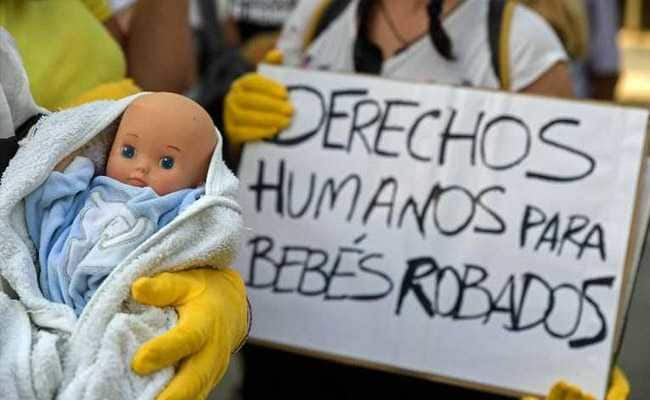US President Biden on Tuesday signed three executive orders to set up a task force to locate migrant families separated under the Trump administration, reshape U.S. border and asylum policy and review restrictions made to the legal immigration system over the past four years.
One order established an inter-agency government task force led by the secretary of homeland security that will be charged with identifying all migrant children who were separated from their parents during the Trump administration’s “zero tolerance” border crackdown and earlier pilot programs.
Another responsibility for the task force will be to facilitate the reunification of families who remain separated. Advocates who have been working to track down separated families for over two years have yet to locate the parents of more than 600 children. Many of those parents were deported to Mexico and Central America without their children.
During a briefing with reporters on Monday, an administration official said the task force will examine, on a case-by-case basis, whether separated families could be eligible for parole, visas or other immigration benefits to enable their reunification.
Another directive addressed the processing of asylum-seekers along the border with Mexico, committed the Biden administration to helping curb the poverty and violence that fuel U.S.-bound migration from Central America and ordered officials to consider revoking multiple Trump-era asylum limits.
The order mandated a review of the Trump administration’s “Remain in Mexico” policy, which required 70,000 asylum-seekers to wait outside U.S. territory while their cases were adjudicated. As part of the review, one administration official said, the government will look into how the U.S. should continue to process the cases of those asylum-seekers still waiting in Mexico, while prioritizing those deemed to be the most vulnerable.
“As we look at ways to implement the president’s policy for a different and more humane review of people requesting asylum, that MPP population will certainly be taken into account because of the length of time they’ve waited and the conditions they’re waiting in,” the official said, using an acronym for the Trump administration’s official term for the policy.
The order also called for the revival of an Obama-era initiative that allowed some at-risk Central American minors to come to the U.S. legally if they had family in the country with legal status. Former President Trump ended the program in 2017.
Through the edict, Mr. Biden also instructed the Centers for Disease Control and Prevention to review a Trump-era pandemic policy that U.S. border officials have used since March 2020 to swiftly expel migrants and asylum-seekers without a court hearing. The Trump administration touted the policy as a necessary public health measure, but CBS News has reported that the CDC came under political pressure from the White House to approve it.
AFGE Local 1924, a union representing hundreds of U.S. government asylum and refugee officers, recently sent the new administration a white paper containing wide-ranging recommendations, including the quick reversal of Mr. Trump’s flurry of asylum restrictions.
One of the recommendations is to redress “the harms” of Trump-era border policies by surging resources and personnel to review the asylum cases of migrants stranded in Mexico.
“We urge President Biden to rectify the grave injustice done to thousands of asylum seekers who were turned away from freedom’s door and tossed back to the tempest they’d fled,” Michael Knowles, the union’s president, told CBS News.
A third order signed by Mr. Biden required the Departments of State, Homeland Security and Justice to examine Trump-era regulations and policies that imposed restrictions throughout the legal immigration system. An administration official said the order is also aimed at making it easier for immigrants with green cards, including service members, to become U.S. citizens.
“The review will likely lead to dramatic changes in policies that have impeded access to immigration benefits, that have impacted families, workers, victims and survivors of domestic violence, trafficking and other victims of crime and open up the legal immigration process that has been shut down for many others,” the official added.
One of the policies that will be reviewed is the “public charge” regulation that makes it easier for U.S. immigration caseworkers to deny requests for green cards based on past or potential public assistance use.
Advocates have denounced the policy as a wealth test that has scared low-income immigrants, including U.S. citizens who are not subject to the rules on paper, away from accessing critical programs, like food stamps. In 2020, over 13% of adults in immigrant households reported foregoing government aid out of fear that it would jeopardize their immigration cases, according to a report published this week by the Urban Institute.
Asked about sweeping restrictions on immigrant and work visas that Mr. Trump enacted on economic grounds last year, an administration official said more proclamations will be issued in the future. Last week, White House Domestic Policy Council Deputy Director Esther Olavarria told U.S. mayors that Mr. Biden intended to rescind the restrictions, but did not offer a timeline.
On Inauguration Day, Mr. Biden ordered a quick halt to border barrier construction, rescinded Mr. Trump’s travel and immigration limits on several African and majority Muslim countries and instructed the Department of Homeland Security to protect an Obama-era program that provides work permits and deportation relief to more than 640,000 undocumented immigrants brought to the U.S. as minors.
His administration also announced a 100-day pause on most deportations from the U.S. But the moratorium, a key campaign pledge, was later suspended by a federal judge overseeing a legal challenge mounted by Texas.




